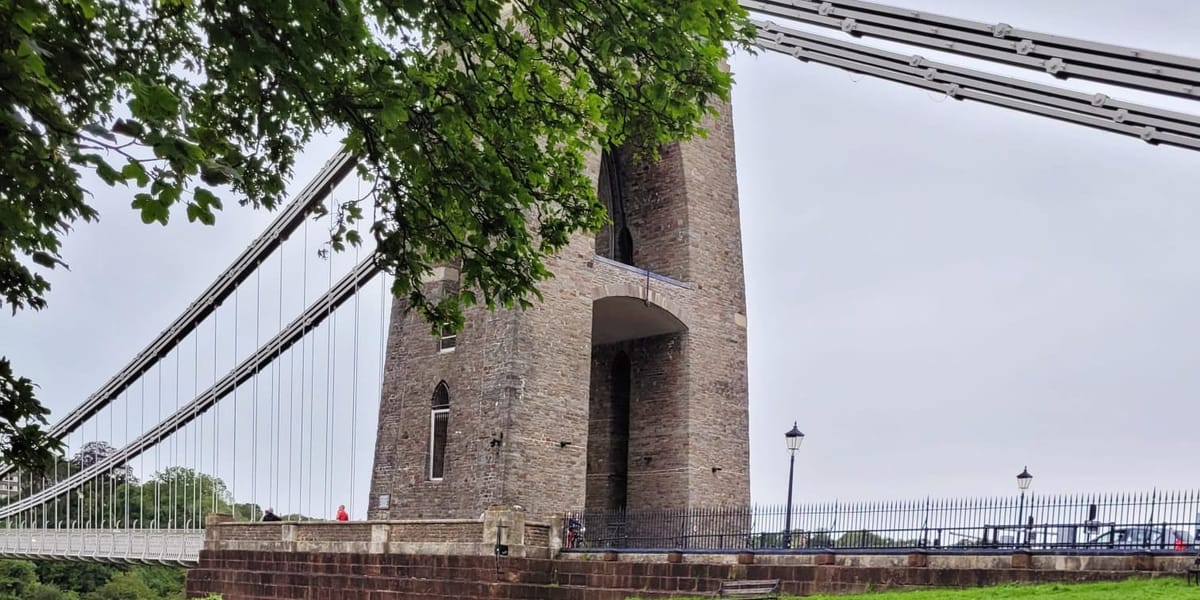a nation, once again

I dream of a time in my life when my thoughts aren't saturated with colonialism.
That's my dramatic way of saying that I am deep, deep in the weeds of writing both the last quarter of my book, and a couple of other projects, all of which are about colonialism, or affected by colonialism. But it's also more than that - I am writing this as an Irish person in Britain. I chose the title of this blog, 'Éireannach,' meaning 'Irish,' because that's my positionality. My days are suffused with the knowledge that I am a stranger in a strange land.
Oh, I don't mean to say that I've got it the worst. I am one of the 'nice, white, educated' immigrants. Until I open my mouth, no-one knows I'm not English. I pass under the recently erected St George's flags without comment, without anything exterior, just a shudder of alienation. If I were a person of colour, it would be a different story. This would be a different story.
Thank you, The English, for inventing the Bank Holiday. I have a sunny summer day off work, and I'm spending it thinking about you and (sorry not sorry) criticising you on the internet. I read a post on Bluesky about how there's a progressive Englishness out there that gets quashed by a far-right media apparatus when it rears its head, but I don't think that's true.
I think England is a concept, like all nations. I think that concept is inextricably linked with its history, with all the things that have been done in its name. I think England, Englishness, has a body count. I think it's got ghosts.
Those ghosts are stirring, at the minute. They're in every flag on every lamppost, every road marking crudely slashed through with a graffitied red cross. The haunting of England, represented by a bigot on a ladder with no intention but to tell foreigners that they're not welcome. It's not a unity movement, it's a unitary movement. England, alone. England, forever.
I think England is a concept and like all concepts, I think people use it as a projection. I would never say that there are not progressive English people, but English nationalism is a more shadowed thing. English nationalism - from what I have seen, and in my opinion - harkens inescapably back to a time that never existed, a time when things were good, and clean, and orderly. A time when things were sunny for everyone, or at least, everyone English - not the victims of the English. This nostalgia, imperial nostalgia, is a poison on English nationalism, because it is precisely this which ties it to conservatism and colonialism forever.
I am not an advocate for nationalism in general - I am critical of countries and borders, and I think it's generally ridiculous to imagine you are better than someone else because of the piece of the map you happened to be born in. I think nationalism leads to dark places, to racism and xenophobia and the politics and policies we see enacted against strangers by successive British governments. Trying to define oneself in opposition to the Other will always lead to insularity, which is a bad thing when you already live on an island.
It's a strange thing to watch, as an outsider-turned insider-turned outsider again. This foaming, fomenting hatred of the Other which is being whipped up by politics and the media, made manifest by small groups of flag-bearing racists outside hotels where frightened children huddle in their rooms. It doesn't come from anywhere rational. Nothing would improve if those children weren't there, or if the 'young asylum-seeking men' who feed all the delusional nightmares weren't there. Nothing would improve because, despite what the country is being convinced of, the problem doesn't lie in those young men. The problem is the concept of England everyone has been exposed to from their earliest days. The problem is whiteness and supremacist thought and imperial longings. The problem is 'England.'
Some days you forget you're an immigrant, and then some days you really can't.
I'd just love to stop thinking about colonialism for a while.
